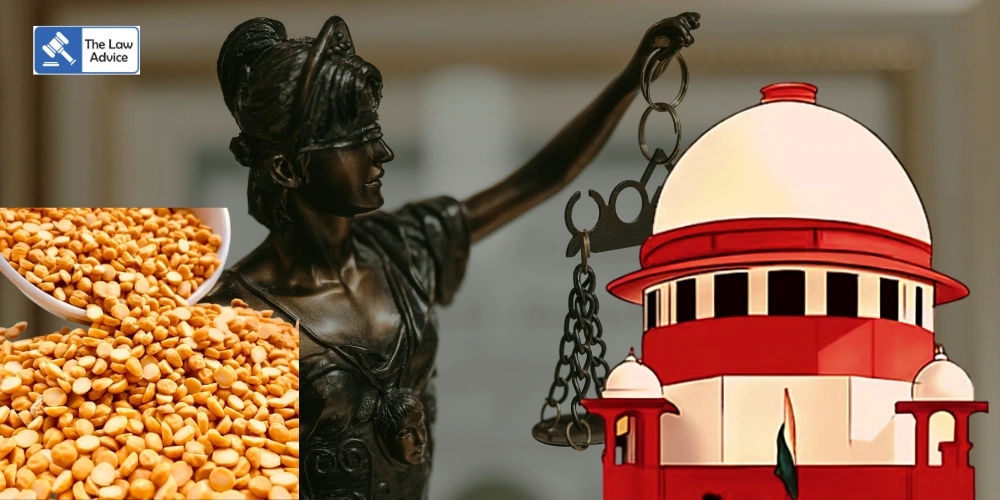The Supreme Court of India on September 25, 2025, issued notice on a Public Interest Litigation (PIL) petition questioning the Union Government’s decision to allow the duty-free import of yellow peas (dal). The plea was filed by the farmers’ organization Kisan Mahapanchayat, which contended that the policy has caused significant harm to Indian farmers by depressing the prices of domestic pulses.
A bench comprising Justice Surya Kant, Justice Ujjal Bhuyan, and Justice N.K. Singh heard the matter. Senior Advocate Prashant Bhushan appeared on behalf of the petitioner.
Petitioner’s Arguments
• Bhushan argued that the policy of duty-free import has distorted market prices, bringing down the rates of pulses such as urad, moong, tur, soyabean, and groundnut to levels below the Minimum Support Price (MSP).
• He highlighted that while domestic pulses have an MSP of around ₹8,500 per quintal (₹85 per kg), imported yellow peas are being sold at approximately ₹3,500 per quintal (₹35 per kg), making it impossible for Indian farmers to compete.
• The petition referred to reports by the Commission on Agricultural Costs and Prices (CACP) and NITI Aayog.
• In March 2025, the CACP recommended a ban on yellow pea imports and an increase in import duties on other pulses to protect domestic cultivators.
• In September 2025, NITI Aayog stressed the need to increase domestic production, reduce reliance on imports, and prioritize long-term food security and price stability.
• Bhushan also submitted that the Government’s order permitting duty-free imports did not specify any reasons, and even the Agriculture Minister had raised concerns about the policy.
Justice Surya Kant asked whether India had sufficient domestic production of pulses to meet its requirements, noting that:
• Farmers often cannot afford storage facilities and are compelled to sell below base price.
• Any policy intervention must balance the interests of farmers and consumers.
The Court also noted claims that in countries like Australia, yellow peas are primarily used as cattle fodder, raising questions about their suitability and health impact when consumed as food grain in India.
The bench clarified that it was issuing notice primarily because the CACP and NITI Aayog reports, both respected government bodies, had flagged serious concerns about the import policy. At the same time, it underscored that the final outcome must ensure that consumers are not left worse off.
Bhushan stressed that the policy has pushed Indian farmers into financial distress, with many unable to recover even basic production costs. He also highlighted the alarming rise in farmer suicides, urging the Court to intervene in the interest of protecting the agricultural community.
The Court issued notice to the Union Government and directed it to respond. The matter will now be considered in light of the official reports and the balance between farmer livelihood protection and consumer welfare.
Case Details
• Case Title: Kisan Mahapanchayat v. Union of India & Ors.
• Case No.: W.P. (C) 911/2025
• Bench: Justice Surya Kant, Justice Ujjal Bhuyan, Justice N.K. Singh
• Date of Order: September 25, 2025
